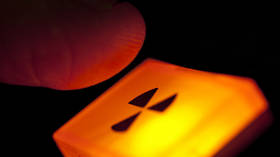World’s five most powerful countries pledge to avoid war

China, France, Russia, the UK, and the US have released a joint statement affirming their opposition to using their nuclear arsenals for offensive purposes. They also promised to work together on nuclear disarmament.
“We affirm that a nuclear war cannot be won and must never be fought,” read the statement released on Monday. “As nuclear use would have far-reaching consequences, we also affirm that nuclear weapons – for as long as they continue to exist – should serve defensive purposes, deter aggression, and prevent war.”
The five signatories said they will continue to abide by their “bilateral and multilateral non-proliferation, disarmament, and arms control agreements and commitments,” and claimed that none of their nukes are targeted at each other or any other state.
The five nuclear nations, known as the P5, are not the only countries in the world with atomic weapons. India and Pakistan both possess them, and Israel is widely believed to have a nuclear arsenal. North Korea has also tested several nuclear devices.
The U.S., Russia, China, the U.K. and France issue a joint statement (don't see that every day) reaffirming that "a nuclear war cannot be won and must never be fought." pic.twitter.com/0nJjiQH6T5
— Zach Basu (@zacharybasu) January 3, 2022
Monday’s statement comes at a time when relations between some of the P5 are at a historic low point. Russia and the US have long squabbled over the placement of American nukes in Europe, and with lawmakers in Washington recently accusing Moscow of planning an “invasion” of Ukraine – a claim rejected by Kremlin – some in Congress have even called for nuclear war should that invasion take place.
Ahead of negotiations between NATO and Moscow, the US has not said it would remove its nukes from European soil. Ratcheting up the tension, Belarussian President Alexander Lukashenko has suggested his country could host Russian missiles in response.
Further afield, US officials have claimed that China is dramatically increasing its stockpile of nuclear arms.
While pointing to Washington's “disregard of facts,” Beijing said it has a “no first use” policy, adding that “no country will be threatened by China’s nuclear weapons.”
At the same time, last year the US, the UK, and Australia brokered a pact called AUKUS, aimed at arming the latter with nuclear-powered, yet conventionally armed, submarines. As a result, Australia unilaterally canceled its multi-billion-dollar diesel-electric submarine contract with France, which Paris said was a “stab in the back.”












